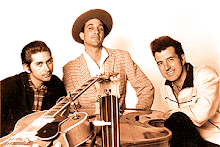Ever since the advent of alternatives to music on vinyl discs made their various entrances in record stores (i.e. 8-track tapes, cassette tapes, CDs, etc.) the sale of music has been on a roller coaster ride which record stores have had to contend with and overcome. It doesn't surprise me, however, that several times now in our 21st century those 20th century bridges to the MP3 have seemed to all but disappear. It's interesting that vinyl never does but there's a very a good reason why. Back in February I spotted this article in the Denver Post commentary from a Washington Post Writer, Esther J. Cepeda titled The beautiful sound of slowing down which I'd thought I'd share with you:
August 12th this year was the first National Vinyl Record Day and Sony Music will be reintroducing vinyl records after 28 years hiatus. Look for more on this by March of 2018 !
August 12th this year was the first National Vinyl Record Day and Sony Music will be reintroducing vinyl records after 28 years hiatus. Look for more on this by March of 2018 !
Those of a certain age remember the bond forged with music emanating from the intimacy of a needle riding the grooves of a vinyl record. You may recall the accouterments: the 45-rpm adaptor, the velvet cylinder used to clean dust off the record and maybe a penny for rebalancing the stylus head. Unless you had a super-fancy sound system, you sat, like Nipper, the famous RCA record label dog, close to a speaker, head cocked, listening intently for whatever it was that swelled your soul: lyrics, instrumentation, a voice. You had a musical experience.
Last month, after attending a particularly life-affirming piano concert, I began thinking about the outsized yet inconspicuous role music plays in our lives today.
Music plays everywhere and is cheap, if not free, in any genre imaginable, at the click of a button. It will stream through your phone, iPad, computer or any other device with access to the Internet and go on without interruption, not caring whether you're paying attention to it or not.
Even those of us who do purchase music find ourselves with a less than satisfying experience. You go to a website or an interface like iTunes, search for a song, pay a buck or so to download it, then play it through the computer or through your (cell ) phone.
In the unlikely event that you purchase a full album, you then have to store the thing in such a way that it will play back in order- maybe not an issue for Taylor Swift's latest (snicker! ), but required for, say, Pink Floyd's "The Dark Side of the Moon" or a multiple-movement symphony composed to be heard in a certain sequence.
In contrast, I recently found a rack of used vinyl records at my local Goodwill store and not only did I enjoy standing there, combing through the stacks of LPs but there also was the album art to enjoy, the value of buying a whole album of carefully curated pieces of music for $0.99 and the extensive liner notes. Liner notes ! When was the last time you read an album's liner notes ? Does popular music even bother to make them anymore?
I came home with 15 albums of some of the most important orchestral music ever composed, played by the world's greatest orchestras in their prime- Boston Symphony Orchestra under Pierre Monteux, the Philadelphia Orchestra under Eugene Ormandy, the Philharmonic-Symphony Orchestra of New York under Leonard Bernstein. Gold, in other words. Hours and hours of it for 15 bucks.
I bought a record player, shined up the vinyl and sat down to listen to Bernstein conduct Tchaikovsky's "Romeo and Juliet Overture-Fantasy." You know the one- it's the romantic theme you hear in the kinds of ads where non-dairy butter-flavored spread meets heaving toast in a meadow and they fall in love for your breakfast consumption pleasure.
The piece- at turns dramatic, savage, syrupy and mournful during its 20-minute length- didn't sound as crystal clear as it does in any of the many digital versions on my phone and computer. But then again, I wasn't making dinner or writing out bills while I listen to it. I savored every crackle-infused silence and bordering-on-distorted crescendo.
A return visit to vinyl is not regression or nostalgia, it is a willful act of slowing down. If that means reading paper books, spending some time with yourself in silence or really intently listening to whatever music you like without distraction (digitally or otherwise)- do it. You won't regret it.
You may think that all this is directed to those of a certain age but in actuality it is a call to experience hands-on technology that imparted other esthetics which have been lost besides those great liner notes which told you who inspired the music, who all was involved- directly or indirectly- and more about the artist ( s ) who make the music. Lyrics were right there at your fingertips. You learned more about music because of liner notes. Sometimes full-size posters and signed photos accompanied those albums like The Beatles' White Album (raised letters instead of the title in gray assured you of that original package). How would you know that the design of the Sex Pistols' Never Mind the Bollocks was made to look like one big ransom note without the album cover? Antiques? Not in this current life time. These 20th century phenoms are like finding vintage wine on an aging rack. If you can't appreciate that you are doomed to sip musical grape juice for the rest of your ungrateful life and never to know the joys that technology has imparted for far longer than you have been alive.
Just sayin. . . .
The Castle Lady







































